
ThiThe mirror of social peace begins to crack. The European social democratic management is expiring and the current political classes take notice of it. While in some other countries the legal bases for this shift have already been voted in the parliaments under relatively peaceful circumstances, the enmities in Greece took an unexpected width. This conflictuality could be put under the banner of the usual social movements against the dismantling of the welfare state, were it not that it is tending towards something very different. An agreement with the state in the logic of the old social pact seems to become less and less probable because there is no economic, political and social base left for it. We are experiencing something new. Accustomed to struggle against the social pacification and its consensus, we might now be facing a new form of management tending towards a climate of war. Therefore it is all the more necessary to develop new perspectives, to venture some new hypotheses on social war.
Other horizons
Risking a schematisation of the reality but aiming at sketching out a few analytical routes which permit a more precise intervention in this reality, we can state that a profound restructuring of the economy –but not only- took place at the end of the 70’s. A considerable part of the industrial complex on the European continent was dismantled and decentralised by the integration of new technologies, the transformation of the production processes and delocalisation. The existent rigid class relations were thoroughly turned upside down and torn apart. Thanks to the ever more deeper penetration of wares, capital started digging into ‘new’ markets related to the new technologies and strongly marked by the aspect of ‘services’.
Unfortunately, the restructurings after World War 2 and after the dictatorial periods in other countries have for years gambled on a social state which was assumed to accompany this capitalist reform and manage the social tensions accompanying it. From the 80’s onwards the so called ‘social achievements’ are under pressure and during the 90’s it are the international context and the local power structures which define the rhythm of its dismantlement and crumbling. The flexible labour market, the dismantlement of social welfare such as the pension system, the liberalisation and privatisation of the energy-, communication- and transport sector unsettle that which many had for a long time assumed being certainties.
The ‘financial crisis’ which started last year is in fact not a crisis but a consequence of these new restructurings. While many states have reserved big sums of money to ‘save’ an amount of banks, it was in fact mainly the selling out of ‘public’ institutions and industries that continued. However, the states remain to have massive deficits; a few recipes to replenish their coffers have already been used. They shall have to continue cutting in the human flesh. The current Greek situation gives us a preview of what is awaiting us in other countries.
The economic measures as they are being pushed through today in England, Spain, Italy, Greece and many other European countries are in fact diametrically opposed to what for decades used to be the paradigm of the ‘social state’: an acceleration of consumption on the interior market. On the one hand, the Greek state is reducing the access to consumption (reducing wages and pensions) and on the other hand it drastically increases the taxes on consumption wares hoping to get still some cash. It is clear that they do not longer practise the European model of ‘including the poor’, they openly declare that a whole part of the population which is already touched by misery, must now submit itself to an imposed exploitation and may be happy for it. For years this has been more or less the direction of the European immigration policy. In contrast to the ever more increasing immigration, the so called Fortress Europe manages the migration streams by means of regularisations and an acceleration of the deportation capacity, firmly connected to ever more precarious labour contracts. The existence of a lower layer in the population is clearly accepted and appreciated in function of the needs of the market.
Other conflicts from over the past years (just a few examples: Argentina in 2001 or Bangladesh, particularly in 2006) already pointed towards a harshening of the economical war, the current events in Greece are its objective European confirmation. State and capital are sensing a new horizon and they won’t offer their brutality on a golden plate any longer. Although hard times are announced, especially given the current weakness of the social and revolutionary critique, we have the intuition that for us as well new times might come, times which open up possibilities that we’ve often lost out of sight – and not because of the reasoning “the worse the better”. Although surprise gives us a pleasant feeling, we should make a big effort so that we will not experience the current challenges as being powerless commentators, sucked in the passive role which the domination is trying to sell us since years.
In the country of Prometheus
We have to go back a lot of years in history to find back a moment and space in which the revolutionary movement –moreover largely anti-authoritarian- was capable of being close to the social developments and social struggle as it is nowadays in Greece. It is the temporary result of many years of cross-fertilization between the Greek anarchist movement, in all her diversity, and a certain social combativeness. Many times the Greek anarchists have been standing next to the oppressed that revolted while they are as well able to struggle in times when the rest of society is looking towards the other side. Our enemies are aware of this as well. Not only was Greece assigned the role of the first eurozone country to take drastic social measures against the exploited and the up till now included in function of a new restructuring; not only is Greece an important operating base for the military management of the Balkans and at the same time an increasingly important passage through for eastern immigrants; it is as well the country facing ongoing social tensions and a fierce revolutionary activity.
Now that the institutional left is at power in Greece, she can no longer play her classical role of recycler and inhibitor of a growing social struggle. She has lost this chance when she was elected, on the basis of a ‘progressive program’ following the explosion of December 2008. So the margins of the Greek political class have been considerably reduced and two –nothing new seen from a historical perspective- roads are opening up: either does the hard right succeeds, making use of the demands of the international capital and the latent patriotism, with the aid of a technical administration to restore order which an iron fist, or the possibility of an insurrection rises at the horizon. There is a lot at stake.
During almost the whole of 2009, Greece has known a long series of strikes, blockades, manifestations and attacks against the power structures. The protests accelerated when the socialist government passed in fifth gear facing an increasing speculation against the Greek national debt (note that a big part of these debts is in hands of the ‘Greek’ banks) and the explosion of the budget deficit. It is not exaggerated to speak of a ‘climate of war’ on an economical as well as a political and social scale. From the beginning of 2009 up till now they’ve been cutting in the wages and pensions (from 10 to 30%), direct and indirect taxes were increased, education was restructured, public health care was almost entirely abolished. In order to maintain the structures of the state, the Greek political class and economic elite is obliged to turn Greece into a paradise of imposed exploitation, a spearhead in the European Union. The Greek state has declared war upon the lower classes and it solemnly tries to keep up the appearance of some “care about the people” by making use of patriotism and the spectacle of the “revolutionary terrorism”.
From an objective point of view the situation for the current Greek institutions is at a rather critical point and it has been a long time that a European state has felt the hot breath of a possible uprising. But let us not go too fast. Despite the meaningful but circumscribed disorder (on the manifestation of the 5th of May the trade union leaders of the GSEE could not even say 2 words before getting chased by hundreds of protesters), most protests maintain the directions of the social democrat unions, the Stalinist party KKE and a few leftist structures such as the PAME, because they are still at the base of a few formal initiatives such as the general strikes. Despite the many practical experiences of self-organisation in the street (during manifestations, occupations, and riots), the protests do not yet pick up the necessary confirmation of their autonomy. In combination with a fairly brutal police repression and terror of the media, there is the danger of getting dragged into a bruising battle. Without claiming that the general strike (as opposed to “action days” of 24 hours) would be the harbinger of an insurrectionary movement, it stands beyond doubt that it is necessary to paralyse the economical activity and the circulation of wares. For this, a decentralisation of the initiative is necessary, or in other words, an affirmed self-organisation of the struggle. One of the possibilities to wrest the initiative of the unions and create an empty space in which the seeds of self-organisation may flourish seems to move towards the paralysation of a few economic infrastructures (communication, energy, transport) in a decentralised but well-considered way. And this matter does not only concern the revolutionary minority as some might claim, but it is a practical proposal to everyone, which feeds itself with the many experiences from other pre-insurrectional moments and in which creativity and diffusion outweigh an economist or military way of viewing the proposal.
Insurrection is not the work of revolutionaries and anarchists on their own. It is social, not only because it includes a big part of the exploited, but mainly because it undermines the existent social roles by destroying the structures which support them. But just like it doesn’t shoot at the exploited in order to end with exploitation, but at the structures and the people who enable this exploitation, it can neither let itself being blocked in an apology of ‘the people’ or ‘the exploited’ whose consent in the end is the fuel which makes the machine turn round and round.
The insurrectional hypothesis which seems to emerge in Greece actually follows a very different logic than the paradigm of the urban guerrilla. At moments of an explosively growing social tension it suits the state very well to present the conflict as a duel between two ‘fractions’ (in this case, the state versus the adepts of the urban guerrilla with the population as spectators). Not that she would not on a certain moment be able use the anarchist movement as a whole for this extent and try to let it been swallowed in a big spectacle –this is even very plausible- but it does not seem too intelligent to make it more easier for them by – even if it’s not been made explicit- making hierarchies between the different forms of attack against the structures of state and capital. Insurrection does not need any advance guard or protectors, she needs nothing but – free from all fetishisms- the determination of blowing the wind of subversion through the society. Already today, when the insurrection is still a hypothesis, the question of weapons needs to be put in the perspective of arming everyone, of a generalized offensive with the weapons in hand. We cannot let the armed fact been pushed back to this or that group, letter word or fraction.
The Greek state is beginning to insist on a fast militarization of the conflict, and hopes that the anarchists, maybe because of their generosity, will take the initiative in this. So the state is intensifying the specific repression and terror against the anarchist movement; in the meantime she has made clear as well that there will be dead bodies, that torture will not be hidden, that they are not afraid of an extreme militarization of for example Exarchia, that the fascist parastatal troops can hit fiercer and fiercer. The state does not only want to isolate the anarchists from the social struggle and break up their dynamics, but as well wants to drag them down into the spiral of an eye for an eye, a tooth for a tooth, entailing correct and brave counterblows of the anarchists but which could be at the extend of a subversive decline in the wider spheres of society. The state is consciously making use of the media with a contra insurrectional point of view trying to spread terror, making the population afraid (of the growing number of immigrants in Greece, the ‘anarchist terrorists’, the ‘blood thirsty robbers’,…). The state does no longer manage itself by using order, by calling for social peace and conciliation, but by declaring war on all who struggle. It’s difficult not to get trapped, not to get caught into the nets of a military conflict which is beyond doubt the bearer of death for any subversive project. Let’s be clear, the current situation asks for clarity: this is no call for putting down the arms, no discourse that says that the “insurrectional violence frightens the proletarians and therefore should be restricted”. On the contrary, this is the moment to give weapons to everyone who wants to use them; to share the necessity of attack as much as possible with all who don’t want to kneel down any longer in front of the altar of the Nation and the Economy; to give the attack the place that in fact should always be hers: as an act of wilful destruction of an enemy structure and not a vehicle for self promotion. Subversion looses strength when comrades only speak after firing.
About a here and there
Now that long stored possibilities are violently trying to storm into the reality in Greece, urgent questions are coming up for comrades from other countries. Not only because what is happening in Greece will most probably have an effect on all anarchists and revolutionaries somewhere else in Europe and beyond, but mainly because a possible contamination is becoming more probable every day. We don’t want to bring the classical domino theory back to life, but it seems to us that because of the ever deeper inter-national integration of the economic and stately structures on the old continent (having the project of the European Union as its formal structure) it would point out to be a self chosen blindness if we look at the borders of the areas where we live, of the national states where we struggle as a horizon that cannot be overcome. The old question of internationalism is coming back and asks for some new answers.
Mainly it are the same questions which have been knocking on the doors of many comrades in December 2008, with the difference that today the question is much more demanding. Although travelling to Greece can be very interesting to exchange and share experiences, we think the question is more of how we in our own context can go further than declaring our international solidarity and push the question further than a generous and encouraging pat on the back to our Greek comrades who at the moment have so much to loose, but especially so much to win.
Considering that, given the extension of the social war in Greece, all struggles and deeds of revolt will have a bigger importance. Not because they would in one way of another put direct pressure on the Greek institutions, but exactly because they could be the feared bearers of contamination. Partly objective and partly dependent of a voluntary effort, it is possible to entangle different ‘local’ struggles with the social war in Greece, and visa versa, exactly because it is the logical consequence of a social connection, a resemblance of the Greek situation which, as whispered to us by our intuition, could happen tomorrow in ‘our’ areas as well. And it is certainly not malicious to state that the forces of subversion in many countries are less strong than in Greece and dealing with an overall presence of a furious reaction (just think about Italy where racism and the political management is having totalitarian edges since there is a terrifying consent in broad spheres of the population). This is why the necessity is pushing itself to go further than solidarity and to really try to intertwine our struggles internationally. Every given blow, can have a meaning that surpasses it; and we have to work hard towards this direction. In this way we could stop the logic of a here and there in our perspectives.
Although the current economic restructuring seems willing to make a new area of accumulation out of a generalised instability (in contrast to a few decennia before), another destabilisation which doesn’t aid the domination is possible. It is necessary to think, to think seriously. Is it impossible to make some analyses which bind the local context to what will most probably touch the whole of the eurozone and in this way permit the evaluation of ongoing struggles in function of their potential destabilising effects? Maybe it is, maybe it is not. In any case it seems a challenge worth to be noted. To reinforce each other when a battle won in the drawn out social war could exceed its first concrete result; trying to develop our activities in light of their relation to the activities a few hundred miles away. Trying to go on these roads might help us developing insurrectional hypotheses, and as well avoid being caught up by surprise, to discover opportunities to push the discontent and anger present in many countries (and sometimes expressing itself in a confused way or lacking any libertarian perspectives) towards a social war against all forms of exploitation and authority.
The dream
An insurrectional hypothesis is in need of more than analysis and activity. Even more, it remains a dead letter or a shot in the water when it is unable to communicate its why. Although it is a method, a practical proposal towards everyone, it nowadays cannot fall back on the presence of a series of vague, yet discussed concepts of liberation. The concepts which have been put forward in the social struggles and made it possible to communicate them no longer exist. We must dare ask ourselves how to revive a dream, not as a mirage, not as a myth, but as intentions alive. The revolutionary contribution to the social struggle cannot limit itself to some destructive hints, to incite revolt. Its insurrectional character becomes more real when it manages not only to indentify the enemy and pose a negativity which will definitely encourage all enraged that want to break their chains, but when it is able to communicate about what we are fighting for and is already cherishing it at this very moment. Two decades of eroding and ideologising have caused a lot of damage to the revolutionary thoughts. We are the orphans of ideas which have lost their thinkability. We need to come out of the corner in which we were pushed and stop making a pathetic apology of it. The coming conflictuality which might have a character different from what we have know until now, offers real possibilities to restart experimenting and breaking through the ideological encirclement. Subversions contradiction is hidden in the tension between on the one hand getting closer towards reality and on the other hand to break the dance, to communicate about what is considered impossible.
These words are an invitation rather than an accurate sketch of our current situation, yes, you could even say it is a call to open our heads and look the challenges straight into the eyes. Much can be at stake in the future and our only certainty is that inertia might have some heavier consequences in future times.
Some friends of Prometheus
May 2010-06-17 quelquesamisdepromethee@gmail.com
s Text was originally published in Frence a few weeks ago



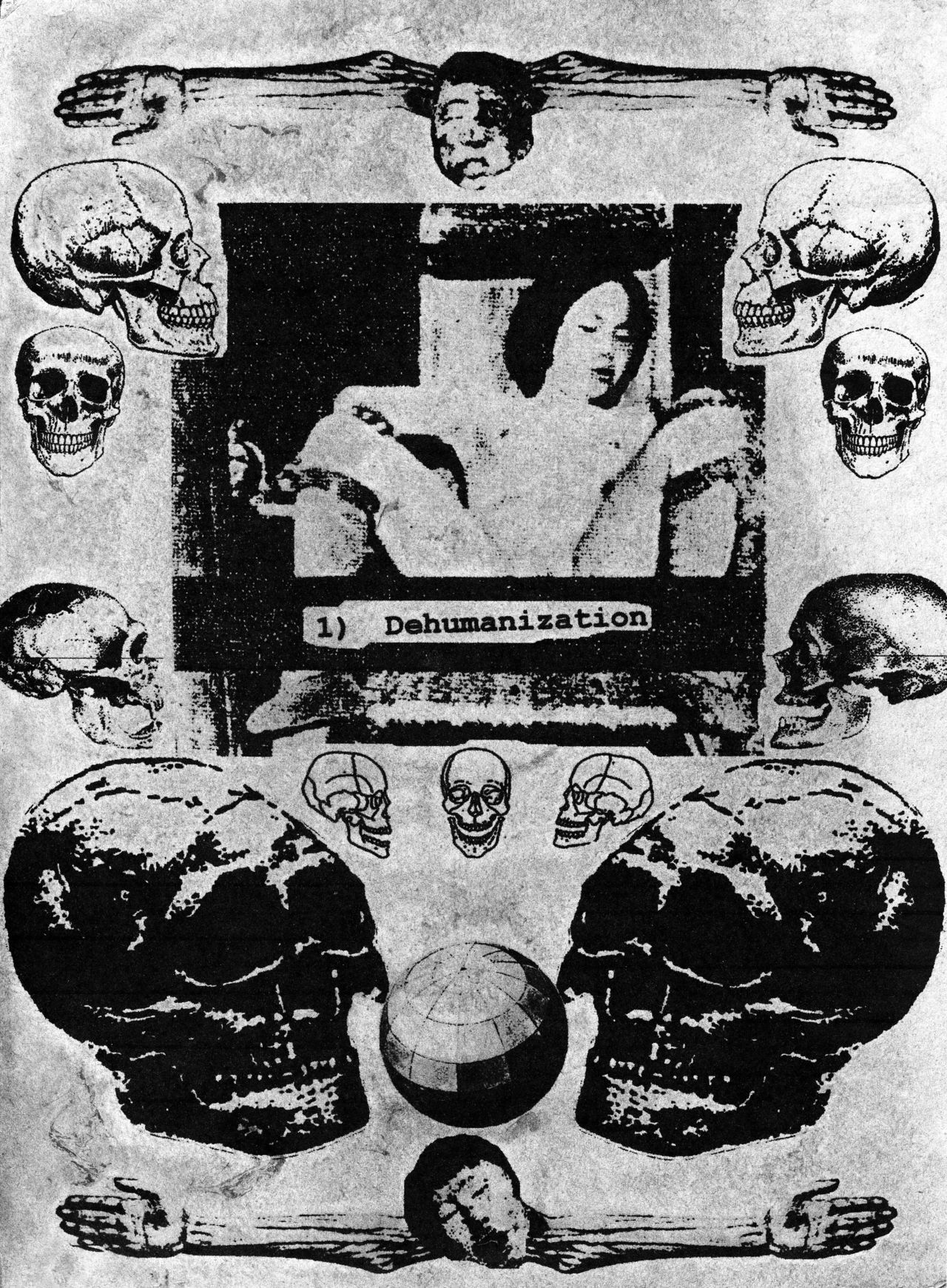



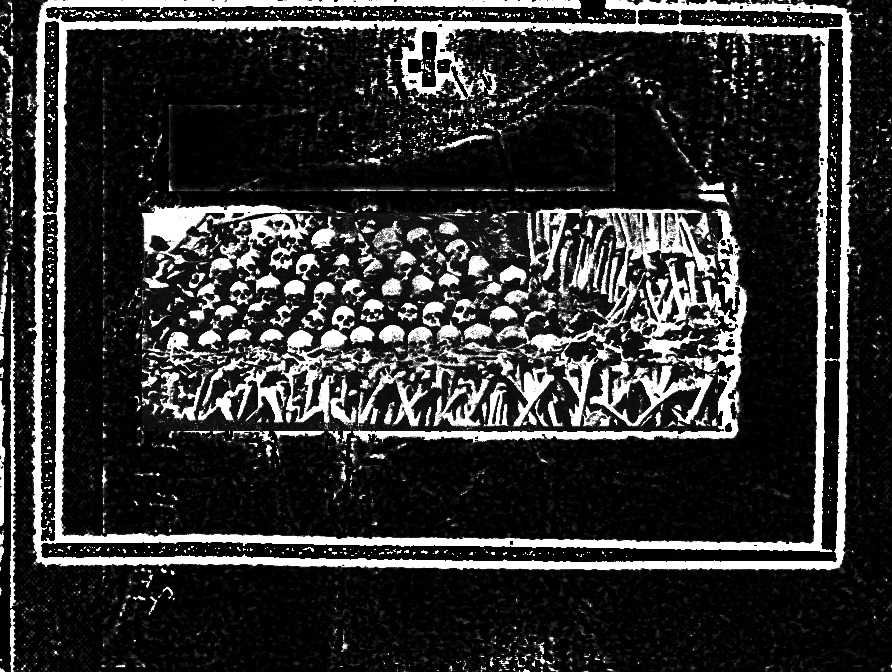
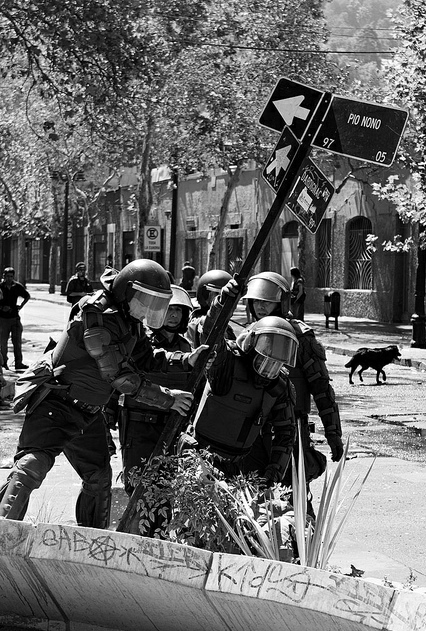



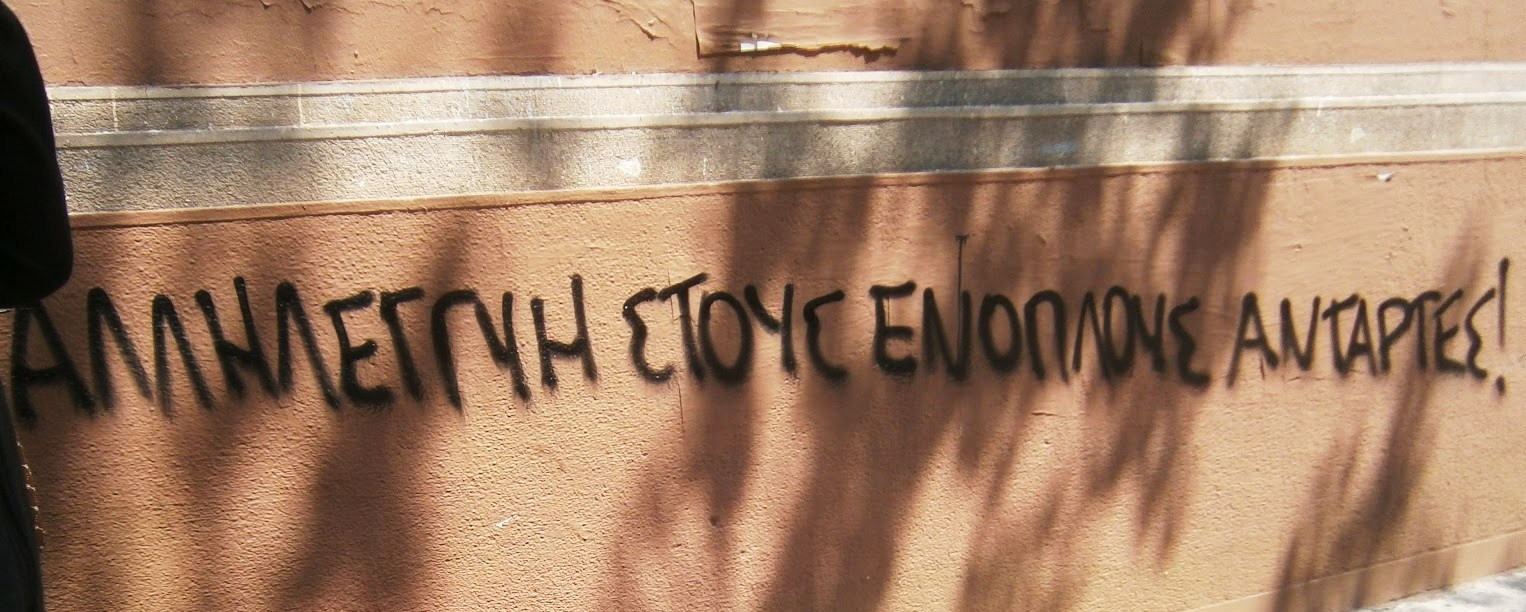

![Eurorepressione - Sulla conferenza a Den Haag sul tema "Anarchia" [corretto]](http://25.media.tumblr.com/tumblr_m0jvngOXtY1qa2163o1_1280.jpg)

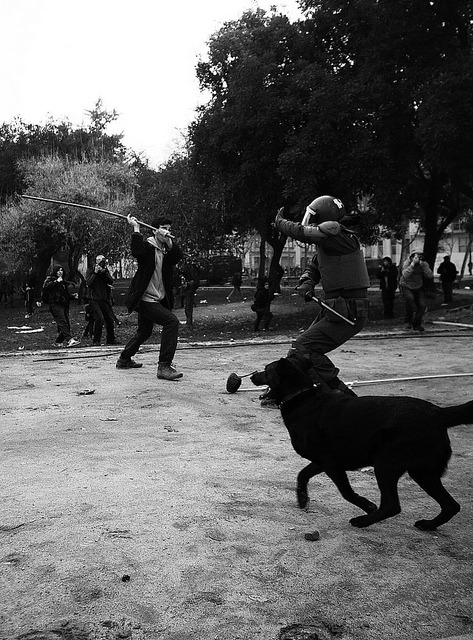

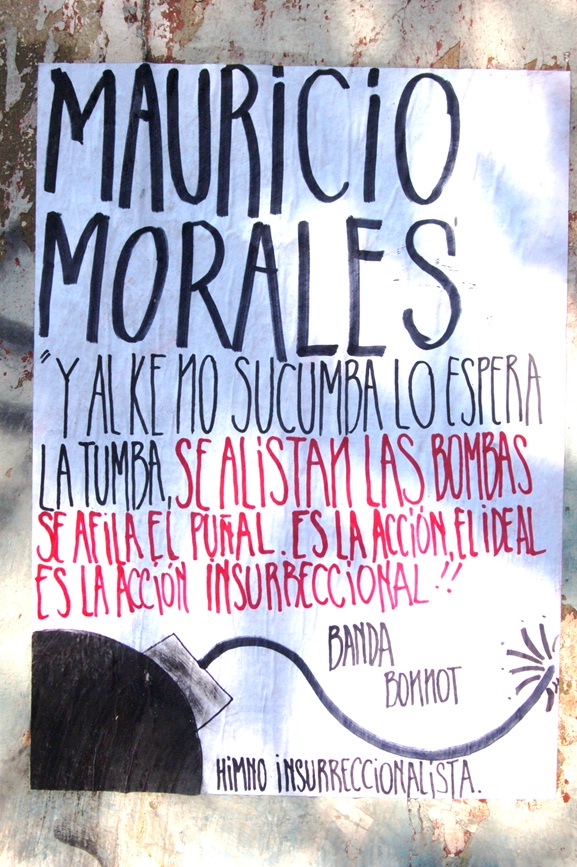
![A tres años de la Partida de Mauricio Morales: De la Memoria a la Calle [Stgo.]](http://metiendoruido.com/wp-content/uploads/2012/05/mmacividad.jpg)

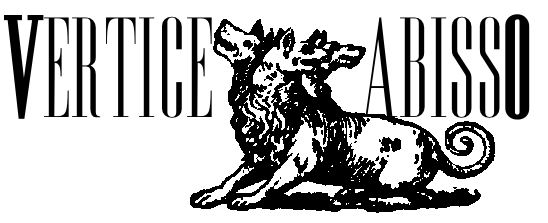



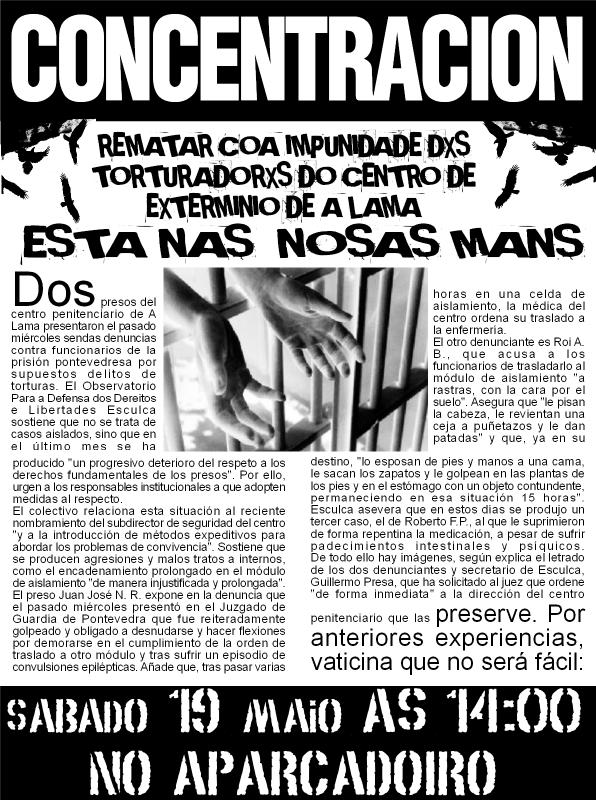

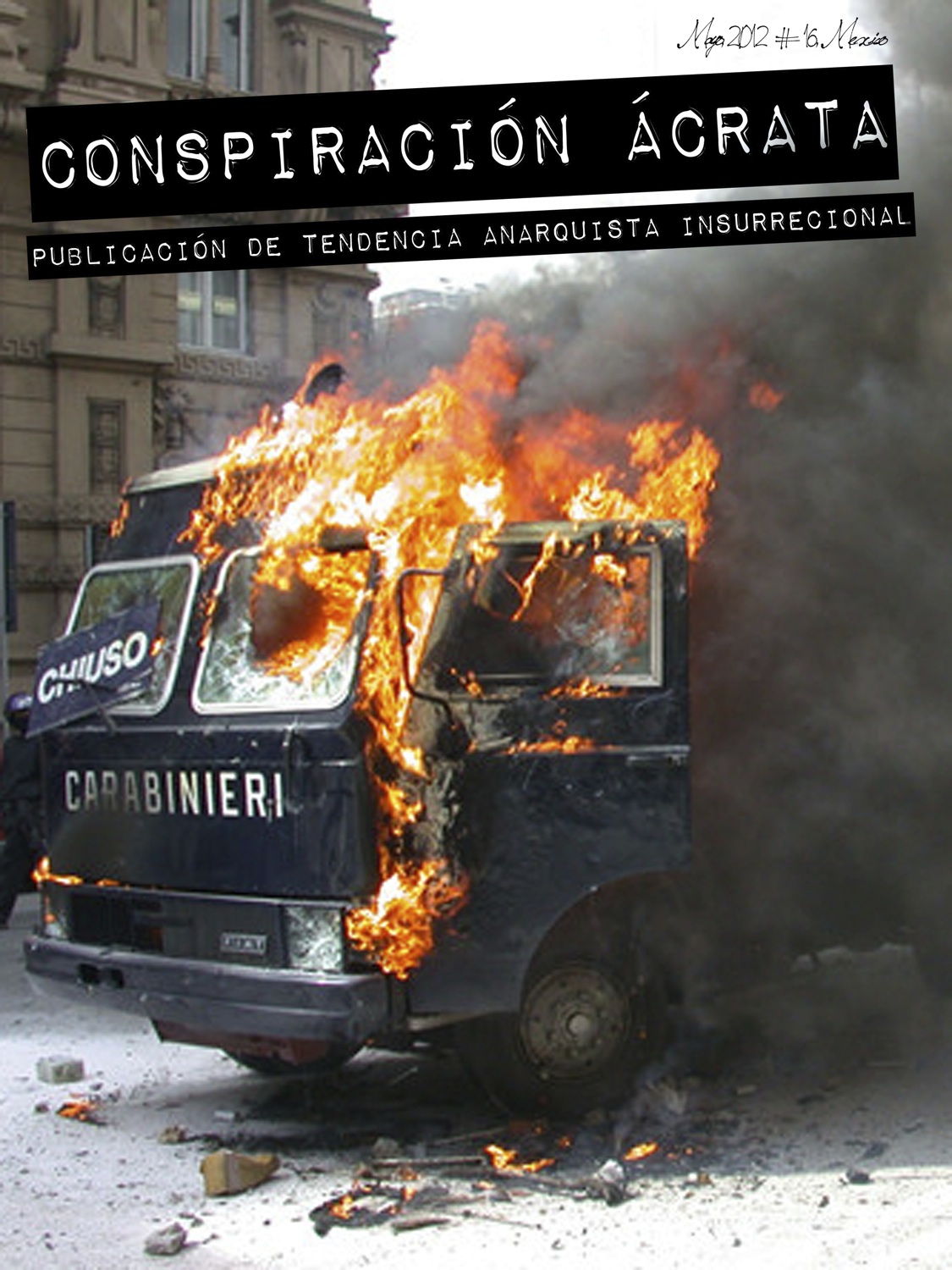


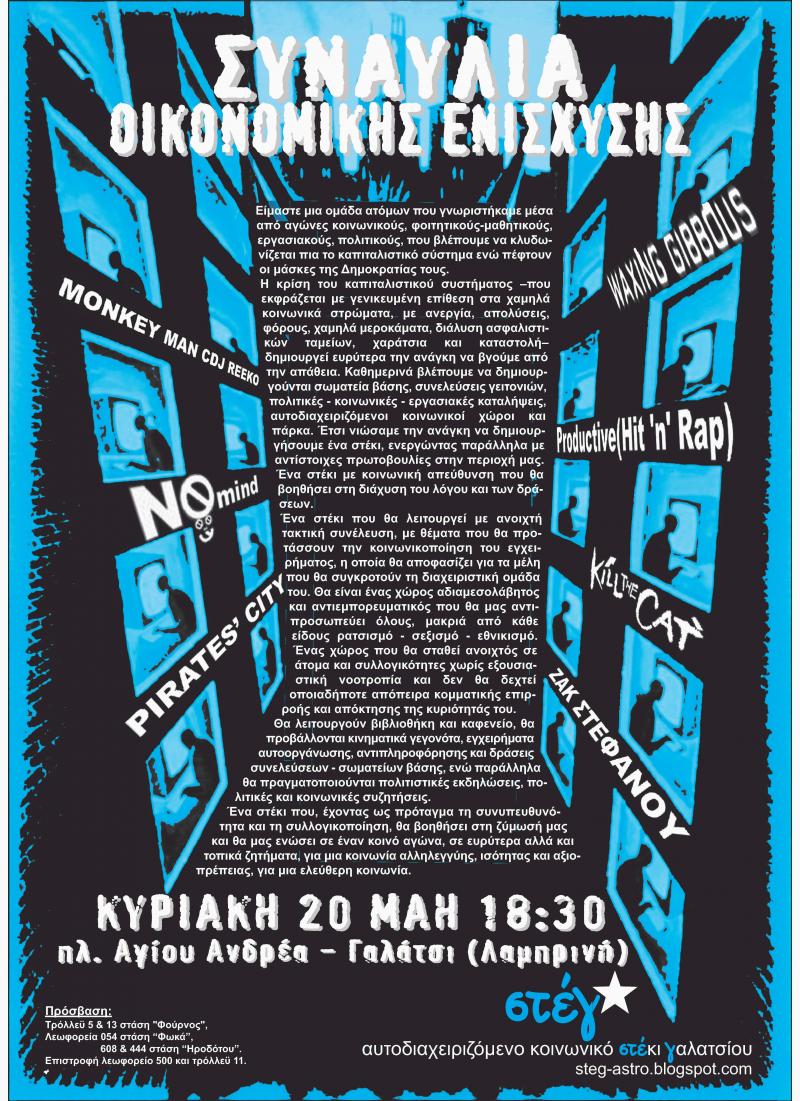








Nessun commento:
Posta un commento